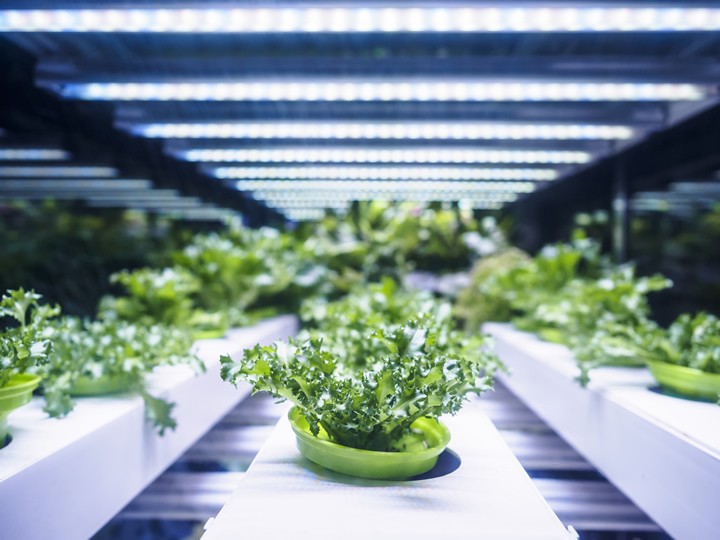Renewably powered aeroponic farms can significantly reduce the environmental impact of fresh produce compared to imports, new study finds.

A new research paper titled “The role of aeroponic container farms in sustainable food systems – The environmental credentials” has found that wind or solar powered aeroponic container farms can significantly reduce the environmental impact of fresh produce compared to importing into the UK. The life cycle analysis was published in the journal Science of The Total Environment by researchers from Brunel University London and LettUs Grow.
The paper explores the environmental credentials of aeroponic container farms and their potential role in sustainable food systems. Aeroponic container farms are a new method of farming that use a soilless technique to grow crops in a controlled environment. This method involves suspending the plant roots in a nutrient-rich mist, which helps to optimise crop growth and reduce water usage.
The study examines the environmental impacts of an aeroponic farm container system in the UK, across a full set of 19 sustainability indicators. It found that aeroponic container farms show competitive performance against conventional methods. The results of the study are significant, as they demonstrate that aeroponic container farms could offer lower impact food when compared with imports. This could also improve food security in terms of availability, stability, and access to food.
"This is one of the first studies of its kind. It evaluates aeroponic vertical farming's environmental credentials under real world scenarios. As with any agricultural technology innovation, container farms are best placed to benefit the environment in specific use cases, locations or for specific crops. This research is integral for allowing us to make educated decisions about where and how an aeroponic container farm should be used to create a positive impact." said Jack Farmer, study co-author and Chief Scientific Officer at LettUs Grow.
One of the most crucial takeaways from the study is that the energy source is critical to reduce most of the environmental impacts of aeroponics. An aeroponic container farm system generates 1.52 kg CO2eq./kg pea shoots using the 2021 UK grid. However, utilising solar or wind power lowers greenhouse gas emissions of aeroponic container farms by up to 80%, meaning that growing produce locally in renewably powered aeroponic containers produces less emissions than importing from most of Europe.
This research is a crucial first step in advancing the conversation around the role of aeroponics in sustainable food systems and how renewable energy integration can fit into this journey. It provides evidence for policymakers and decision makers to understand the benefits and trade-offs of aeroponics when compared with imported foods, showcasing examples of when the aeroponic production system delivers foods with competitive (and sometimes better) environmental performance than similar imported products.
If you’d like to read the paper in full, it is open access and available in Volume 860 of the Science of The Total Environment.
Comments (0)
This post does not have any comments. Be the first to leave a comment below.
Featured Product

